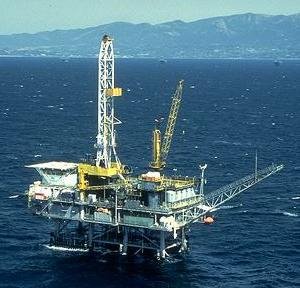How high can we go?
The New York Times reports today that the city, having finally given up on its idea of building a stadium on top of the Westside Yards, has reached an agreement with the MTA to rezone the railyard between 30th and 33rd Streets on 11th Avenue for residential development. And by residential development, they mean luxury highrises.
Never mind that such development will obliterate my office's view of the river. I'm as selfish as the next person, and would prefer not to work next to a building site for the next five years, breathing in the dust kicked up by the backhoes and the additional exhaust from the traffic that will be idle longer than ever.
But come on, is no one in charge of city planning? What text book are they reading that encourages blocking visual and physical access to the river? What real estate forecasts are they consulting that tell them anything other than that there is a glut of upscale condominiums in Manhattan as there is?
And, of course, at the same time that they add to environmental and economic pressures on the city -- all these new buildings are going to be plugging into the same fragile electric grid that the rest of us are barely tethered to, for one; at least some of their residents will want to send their children to our already overcrowded schools, for another -- building more highrises blows yet another opportunity for New York to show some leadership on urban development (the World Trade Center site being the other recent egregious one).
Small buildings, parks, local businesses that offer more than the bland sophistication of another Banana Republic store: these are the things that encourage us to know and care about the people we live with, and don't contribute any more to climate change and energy pressures. Incidentally, they also create the kind of city many of us want to live in.
Never mind that such development will obliterate my office's view of the river. I'm as selfish as the next person, and would prefer not to work next to a building site for the next five years, breathing in the dust kicked up by the backhoes and the additional exhaust from the traffic that will be idle longer than ever.
But come on, is no one in charge of city planning? What text book are they reading that encourages blocking visual and physical access to the river? What real estate forecasts are they consulting that tell them anything other than that there is a glut of upscale condominiums in Manhattan as there is?
And, of course, at the same time that they add to environmental and economic pressures on the city -- all these new buildings are going to be plugging into the same fragile electric grid that the rest of us are barely tethered to, for one; at least some of their residents will want to send their children to our already overcrowded schools, for another -- building more highrises blows yet another opportunity for New York to show some leadership on urban development (the World Trade Center site being the other recent egregious one).
Small buildings, parks, local businesses that offer more than the bland sophistication of another Banana Republic store: these are the things that encourage us to know and care about the people we live with, and don't contribute any more to climate change and energy pressures. Incidentally, they also create the kind of city many of us want to live in.

